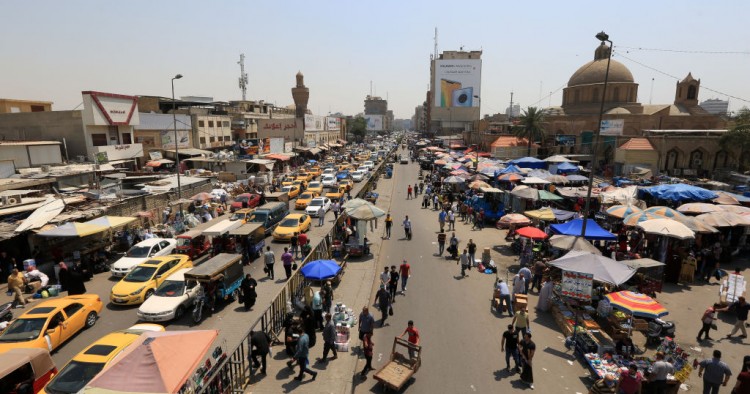In a tweet on April 27, Iraqi Prime Minister-designate Mustafa al-Kadhimi said he is seeking to form a “crisis cabinet” to deal with the health, security, and economic challenges facing Iraq. He warned that he “will only accept what is in the true interest of Iraq, and reject any pressure aimed at undermining it.” This veiled warning sent by Mr. al-Kadhimi to political leaders is aimed at helping him gain leverage in ongoing negotiations about appointments to the cabinet. He understands that if he were to resign, the only default course of action would be to keep the current prime minister and his cabinet in place. There is no agreement between the leaders of political blocs on this, however. Nor would the protest movement accept keeping in place a prime minister who stood by while more than 600 Iraqis were assassinated and thousand others injured and disappeared.
The current state of affairs is a clear indication that the post-2003 system of apportionment of political posts on ethno-sectarian lines is no longer working. Political leaders are competing less across sectarian lines and more inside each sect and ethnic group over who gets to decide the group’s representation in the cabinet and government agencies. Shi’a political leaders fight among each other over who gets to decide the appointment to the Ministry of Interior — seen as a “Shi’a ministry” — while Sunni leaders do the same over the appointment to the Ministry of Defense — long seen as a “Sunni ministry.”
This political jockeying in Baghdad is taking place as the old Erbil-Baghdad rift over control of oil resources is coming to the fore again. Dr. Adel Abdul-Mahdi seemed to have run out of patience with his friends in Erbil over the latter’s not keeping their end of the deal with Baghdad concerning handover of the Kurdistan Regional Government (KRG) quota of 250,000 bpd of oil in exchange for its share of the Iraqi federal budget. On April 16, his office ordered the Ministry of Finance to halt budget transfers to the KRG including funding the salaries of the KRG employees and to recover all transfers made since January 1. Erbil made a proposal to Baghdad to resolve this crisis including handing over all of the KRG’s oil to Baghdad in return for the federal government paying the KRG public sector employees in full and financial dues of operating oil companies in the KRG.
Randa Slim is a Senior Fellow and the Director of MEI’s Conflict Resolution and Track II Dialogues Program. The opinions expressed in this piece are her own.
Photo by Murtadha Al-Sudani/Anadolu Agency via Getty Images
The Middle East Institute (MEI) is an independent, non-partisan, non-for-profit, educational organization. It does not engage in advocacy and its scholars’ opinions are their own. MEI welcomes financial donations, but retains sole editorial control over its work and its publications reflect only the authors’ views. For a listing of MEI donors, please click here.













